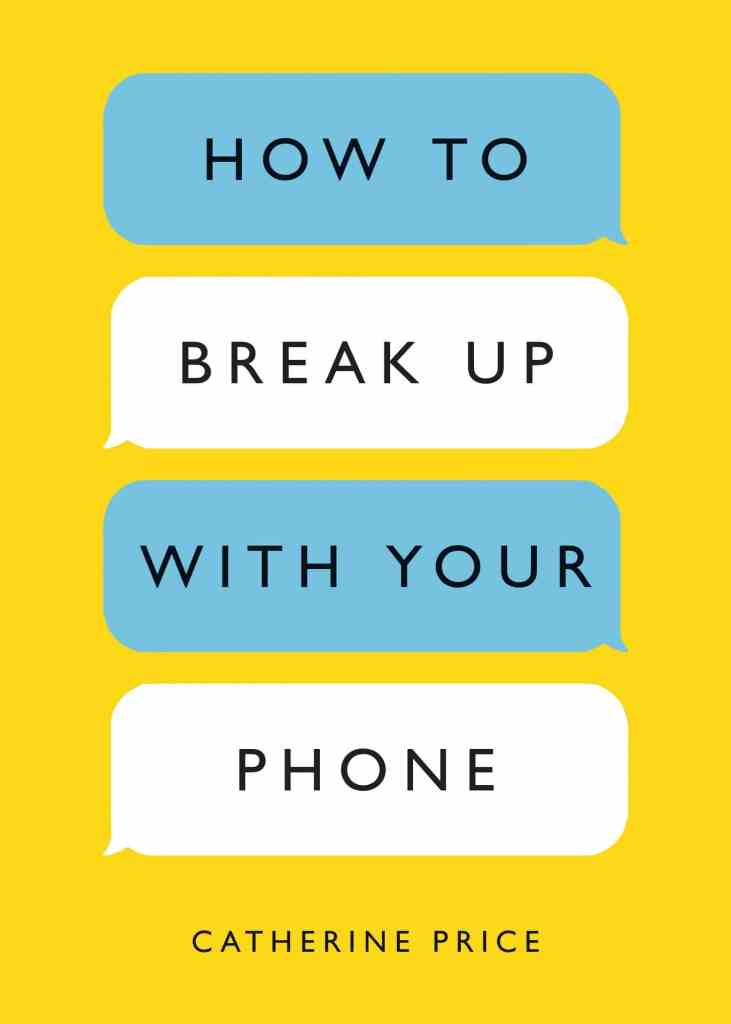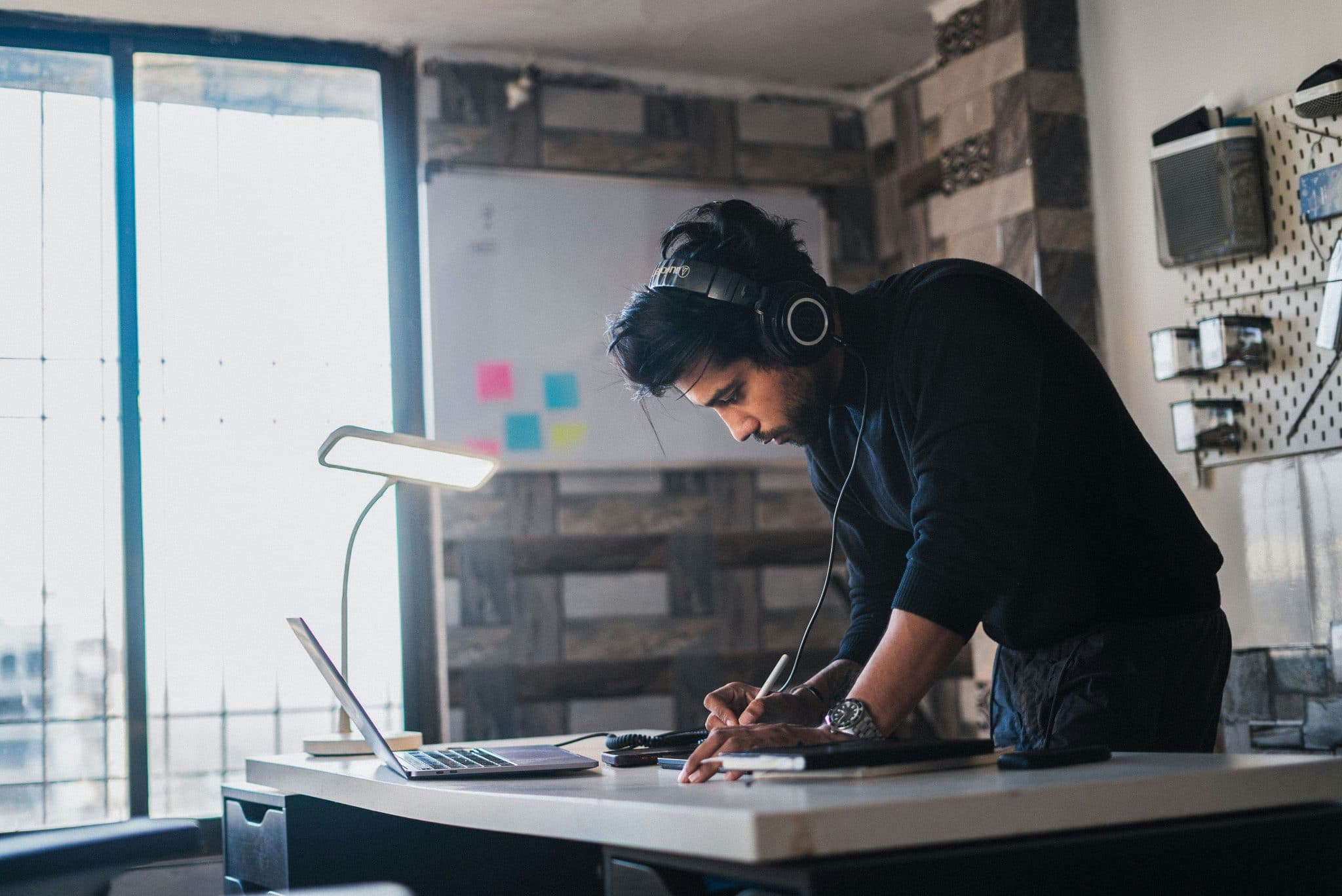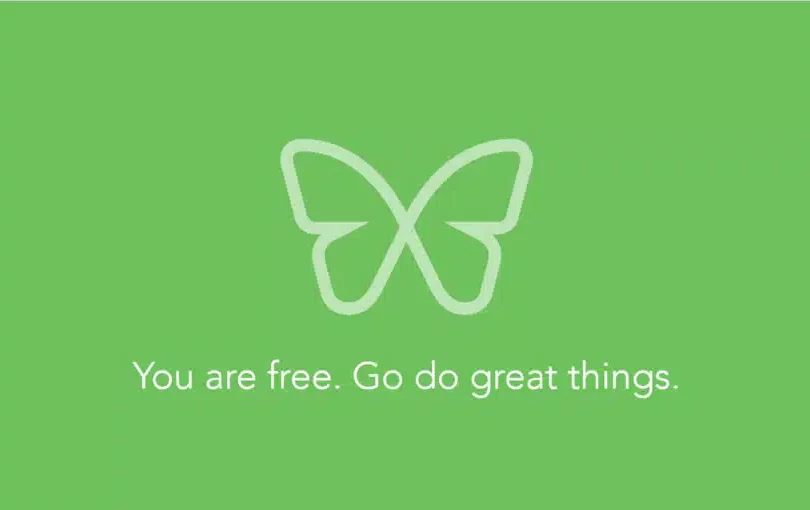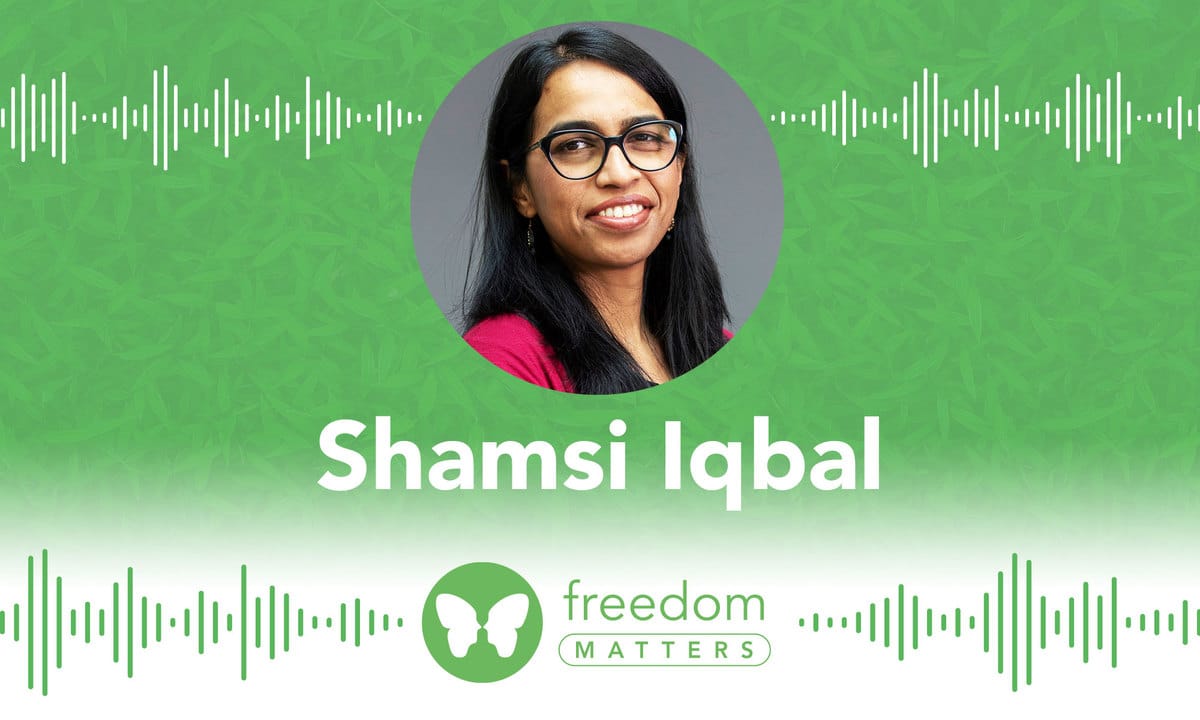How to Break Up with Your Phone (And Why You Should)

So you know you spend too much time on your phone – but what are you actually going to do about it? For most of us, the options are all-or-nothing. You can bury your phone and do a digital detox for a weekend or you trade in your smartphone for the “dumb” equivalent. For most of us, these options aren’t very realistic or sustainable. After all, having the power of a computer in your pocket does have its benefits.
So what can you do when you’re hooked on your phone but aren’t ready to become a Luddite?
Enter Catherine Price.
Catherine Price is an author and science journalist that has spent the last two years trying to find the solution for her troubling relationship with her phone. In her latest book, How to Break Up With Your Phone, Price unveils an abundance of tools and techniques that can be used to take back your time and attention from the grips of your smartphone. The book is a practical guide that is split into two parts – the first part focuses on the science behind addicting tech and the impact of smartphones on our attention, ability to focus, health, and relationships. The second half then gives you a 30-day guide filled with research-backed strategies to help you form an intentional relationship with your phone that’s healthy, feels good, and lasts.
We sat down with Catherine this week to learn a little more about her research, how she took her life back from her phone, and how she finds time and focus to do what matters.
Catherine is also hosting a Reddit AMA this Thursday 3.8.18 from 1-4 pm EST so be sure check it out for the opportunity to ask her any questions you have about How to Break Up With Your Phone and her research.
Firstly, what started it all for you? When did you realize that your relationship with technology was something that needed to be examined, monitored, and even actively sculpted?
Well, I’m a health and science journalist by training and have spent a lot of time writing about neuroplasticity (the ability of our brains to change in response to stimuli)—particularly mindfulness and meditation—so I guess that I was professionally primed to be interested in the subject. But what really got me was a personal experience. I was sitting in a darkened room with my newborn daughter, totally sleep deprived, and had a momentary out-of-body experience where I saw the scene as it would appear to an outsider: she was gazing up at me (with eyes just developed enough to be able to focus on my face), and I was gazing down on my phone. My heart sank: I didn’t want that to be my daughter’s first impression of a human relationship.
That sparked a conversation between me and my husband about our relationships with our phones—and that conversation eventually led to the idea for the book. I’d seen (and continue to see) lots of articles lamenting our dependence on/relationship with our phones. What I hadn’t seen was a solution. So that’s what I set out to create.
The point isn’t to throw your phone under a bus; it’s to create a sustainable long-term relationship. In other words, the point isn’t abstinence; it’s consciousness.
How to Break Up With Your Phone is broken into two parts: “The Wake Up,” which is a summary of the science, and “The Break Up,” which is a 30-day, evidence-backed plan for how to create a healthier relationship with your phone. The point isn’t to throw your phone under a bus; it’s to create a sustainable long-term relationship. In other words, the point isn’t abstinence; it’s consciousness.
What piece of research regarding phones and our relationship with them have you found most astounding?
Probably the stat from the time-tracking app, Moment. It has more than 4.8 million users, and according to its creator, the average user spends 3 hours and 57 minutes a day on their screen. (And we’re talking about times when the screen is actually on—Moment doesn’t count time when you’re using the phone with the screen off, such as phone calls or time spent listening to music or a podcast). That’s nearly four hours a day—a quarter of our waking lives!
What is something everyone should know about how phones impact our lives, focus, or productivity?
First of all, we should know that our phones most definitely ARE impacting our lives, focus and productivity. Think about it: if you spend four hours a day doing anything, you’re going to change your brain. And our brains respond particularly powerfully to brief, intense, repeated stimulation—which of course is exactly what our phones and apps provide.
One way we’re changing our brains: we’re allowing them to go back to their default state of being easily distractible. Why is this our default? Because it’s evolutionarily advantageous. In nature, you need to stay alert to distractions in your environment—say, a rustling in the grass or a shadow—because they might indicate a threat. The ability to concentrate and sustain mental focus is highly unnatural and a difficult skill to cultivate, because it requires not just choosing a target for your attention, but also ignoring everything else. That’s super difficult, and falls to a part of the brain called the prefrontal cortex, which is a relatively new part of our brain and easily gets overwhelmed. When it does, we lose our ability to focus/concentrate and go right back to our default state of distraction.
In other words, when we spend lots of time engaging with our phones–time that is usually spent in what I like to call an “intensely focused state of distraction”—we are undoing a lot of the hard work we’ve put in over the years to be able to stay focused and ignore distractions.
The good news is that if you put in the effort to break up with your phone and re-strengthen your “muscle of attention” (whether it’s through mental practices like meditation, or interventions like Freedom that actually force you to remain on task) you are likely to see a big improvement in your ability to concentrate and stay focused. It’s pretty amazing.
What has a healthier, more sustainable relationship with your phone allowed you to do?
Breaking up with my phone—and creating a new relationship with it— has made a huge difference in my ability to concentrate (for example, I’m answering this interview all in one sitting, which would have been inconceivable before I wrote the book!). I’d forgotten how soothing and satisfying it can be to just do one thing at one time.
I’ve also found that breaking up with my phone has forced me to figure out what I actually want to be doing with my time. I’ve become much more proactive about filling my own time with activities and interactions that I find meaningful, rather than allowing my phone to fill up my time with meaningless interactions and junk.
When/where are you most/least productive and how does this shape your daily routine?
I am least productive with email. I have a compulsive desire to reach “inbox zero,” but also have a compulsive desire to not let anything ever slip through the cracks. I don’t care about social media; I’ve taken news apps off my phone (I check from my desktop). But email still kills me. There’s a Gmail extension called Inbox When Ready that has made a huge difference. That and, of course, Freedom. (I’m serious: when I was writing my book I used those two tools to keep me on task. I don’t think I could have finished the book on time without them.)
Where am I most productive? Um, I’ve gotten a lot more productive at actually working on things from my desktop. I used to have a compulsive tic where every time I hit “save” on the document I was working on, I’d flip over to my browser to check email. I don’t do that as much anymore.
What was the hardest part about breaking up with your phone?
Figuring out what I wanted to do with my reclaimed time. I found that to be one of the most fascinating aspects of this project: how quickly it got philosophical. One afternoon, while I was doing a 24-hour break from my phone (an exercise/ritual that I highly recommend), I realized that I was just waiting for time to pass. It was a horrible realization—but it was also a kick in the pants that forced me to actually identify things I enjoy doing (an oddly hard question to answer)—as well as activities I always claim to want to try, but for which I never seem to have the time. I ended up signing up for an adult guitar class, and it was one of the best things I’ve done for myself in years.
What advice would you give someone who struggles with FOMO (fear of missing out) when disconnecting from their devices?
First, if anything really important happens, you’re going to find out about it. Second, no offense, but you’re actually not that big of a deal—the world will still turn if you miss an email (I say this as a reminder to myself, too!). Third, you can mitigate some of your fear with good planning: post a status update on social media saying that you’re going offline, and tell people when you’ll be back/how they can reach you in the interim. (Thanks to pinned posts/tweets, this is very easy to do.) Create a vacation response for email. Set up an auto-responder for your text messages. (I’ve put together a list of suggestions and resources here.) What I do personally is to tell people to call me if they need me. Then I leave my phone in the closet with the ringer on (so that I’ll hear calls). Or, if I’m out of the house, I put my phone on “Do Not Disturb,” but allow calls from a select group of people, so that I don’t have to worry about being unavailable in an emergency. (You can pick your “Favorites,” or set up a new group from your computer.)
What would you recommend as a first step for someone who wants to start creating an intentional relationship with their phone?
First, get the book! I’m serious: it’s an evidence-backed, tested plan designed to help people create healthier relationships with their devices and reconnect with what’s meaningful to them in life. I developed it based on my own scientific reporting, as well as the experiences of about 150 “guinea pigs” who helped test my ideas and give me feedback.
But in the meantime, here are some key takeaways:
We need to reframe the way we’re approaching the problem. The goal isn’t to spend less time on your phone; it’s to spend more time on your life. This is an important shift: you’re much more likely to stick to your new habits if you believe that they’re making you happier (as opposed to feeling like you’re on some sort of “diet” where, by limiting your phone time, you’re denying yourself pleasure).
The goal isn’t to spend less time on your phone; it’s to spend more time on your life.
Next, begin to pay attention to what you feel like before you reach for your phone, while you use it, and what you feel like afterwards. Do you feel happy? Calm? Excited? Anxious? Fulfilled? Empty? Etc. Just cultivating this moment-to-moment awareness of your own experience can be a very powerful tool for behavior change. (I often catch myself right before I’m about to check email and ask myself, “How is this going to make me feel?” The answer is usually “stressed out,” and once I realize that, it’s a lot easier to resist opening the app.)
To make it easier to remember to ask yourself these questions, I recommend creating some sort of “speed bump” for yourself: a small obstacle that forces you to slow down—and, in so doing, gives you a chance to change direction. For example, you could put a rubber band or hair tie around your phone as a physical prompt (when you feel the rubber band and wonder why it’s on your phone, you’ll be jolted out of autopilot). You can also change your lock screen image to something that reminds you to check in with yourself. ( I created some free lock screen images that people can download from phonebreakup.com that say things like, “What do you want to pay attention to?” and “Do you really want to pick me up right now?”)
And speaking of attention, another key is to remind yourself that ultimately, our lives are what we pay attention to. If you spend your attention on your phone, then your phone will be your life.
Once you’ve cultivated more self-awareness around your phone habits, you can move on to making more concrete changes to your phone and environment (for example, turning off notifications and charging it out of your bedroom) that will help you to establish healthier habits. Also, I really do believe in the power of using apps to protect yourself from your phone. Yeah, it’s a little ironic . . . but it’s also effective.
Catherine Price is an author and science journalist whose writing has been featured in publications including The Best American Science Writing, The New York Times, Popular Science, The Los Angeles Times, The Washington Post, Salon, Slate, Men’s Journal, Parade, The San Francisco Chronicle, and O, the Oprah Magazine, among others.
Her other previous books include Vitamania: How Vitamins Revolutionized the Way We Think About Food (Penguin Press, 2015), a parody travel guide called 101 Places Not to See Before You Die (HarperPaperbacks, 2010), The Big Sur Bakery Cookbook (HarperCollins, 2009), and Mindfulness: A Journal (Clarkson Potter, 2016).
To learn more about Catherine and her work, visit her at catherine-price.com. For more information and free resources from her book How to Break Up With Your Phone, visit phonebreakup.com





